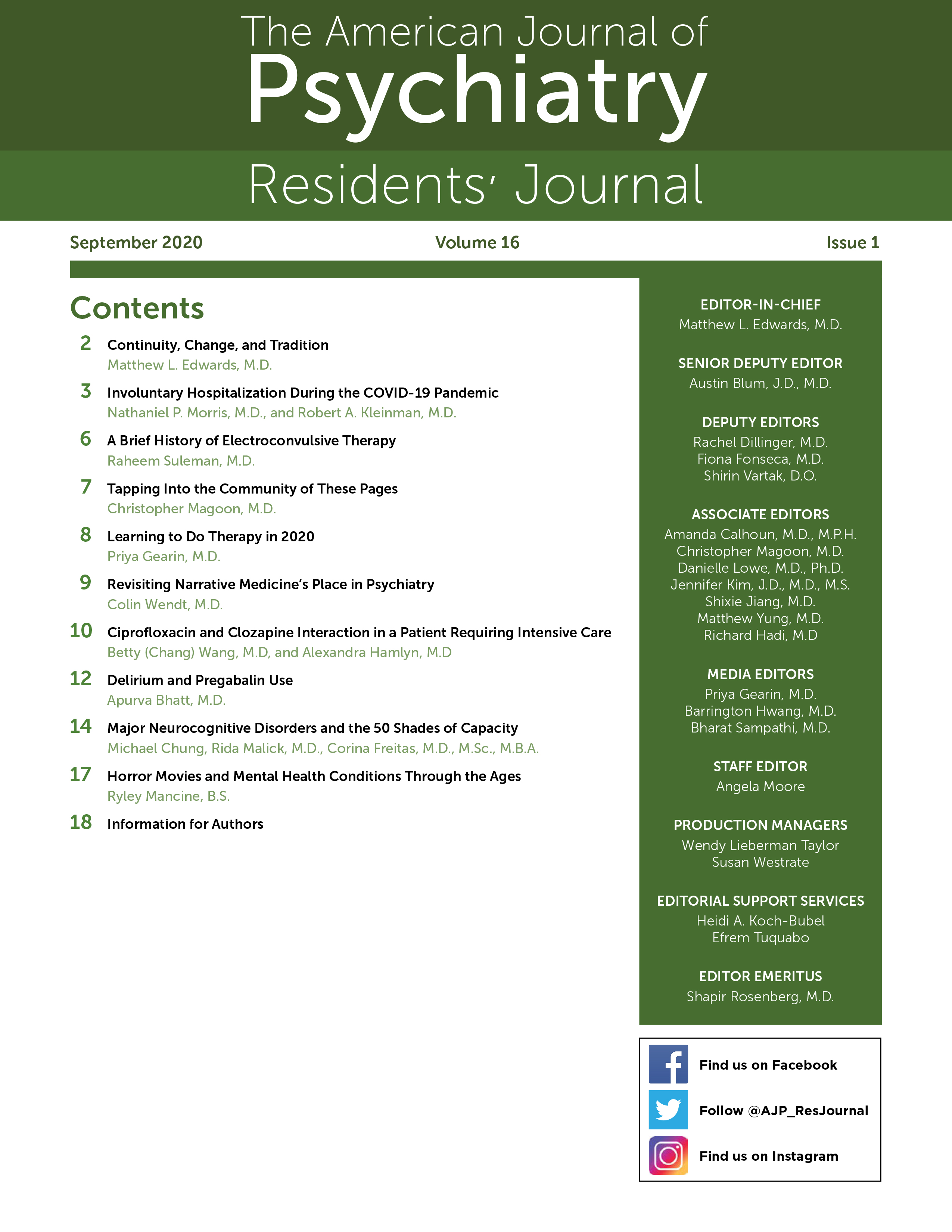Welcome to another year of the American Journal of Psychiatry Residents’ Journal! We are a resident-led, peer-reviewed publication of the American Psychiatric Association that fosters a space for learners to share their ideas and experiences, successes, and failures in training. Now in its 16th volume, the Residents’ Journal (RJ) has become a trusted resource and destination for psychiatry trainees across North America.
Yet as we embark on another year at the RJ, very little seems to follow tradition in this current moment. Amid considerable uncertainty about the future, spurred by the continued threats of COVID-19, increasing political polarization, and global outrage over the inhumane and too familiar deaths of Black Americans, there appears to be an urgency for change not seen since the 1960s and 1970s. As psychiatrists treating individuals navigating the daily trials and tribulations of life in this new context, we recognize that the sanctity of this privileged space for discourse, provided by the RJ, is all the more important.
The RJ boasts broad geographic influence, robust social media presence, regular podcasts, sizeable increases in submission volume, and record growth in the number of applications to its board. I would be remiss not to acknowledge the countless individuals who have helped put the RJ in this unique position. I am deeply indebted to the tireless work of the 2019–2020 editorial board, which oversaw the publication of four expansive issues on topics ranging from military psychiatry to the visual arts, written by authors from across the United States and Canada. I feel privileged to work closely with this year’s Senior Deputy Editor, Dr. Austin Blum, and the diverse group of physicians who make up our editorial board. This remarkable group of human rights advocates, scientists, attorneys, writers, historians, medical educators, media developers, and journalists are equally committed to the care they provide each day to their respective communities.
I am especially grateful for the opportunity to have worked closely this past year with Dr. Shapir Rosenberg, Editor-in-Chief Emeritus. With faithfulness and persistence, Dr. Rosenberg helped elevate the voices and perspectives of trainees during the RJ’s tremendous growth. A humanist, educator, and avid storyteller, Dr. Rosenberg ensured that the RJ continues to be a space where all trainees learn from each other. Like Dr. Rosenberg and his predecessor, Dr. Oliver Glass, I hope to continue promoting this vital mission of the RJ.
In keeping with the call to elevate our community’s voices, I invite you to peruse this issue and engage in dialogue with us. We feature reports, commentaries, and articles covering a wide array of timely issues, from the ethics of involuntary hospitalization during a pandemic to a case report of delirium induced by a medication to treat neuropathy, and from guidelines to assess patients’ decisional capacity to a brief history of ECT. In closing, I echo the words of one of this issue’s authors: "Amid these isolating and challenging times, here’s to turning to these pages to grow, learn, and share together."
